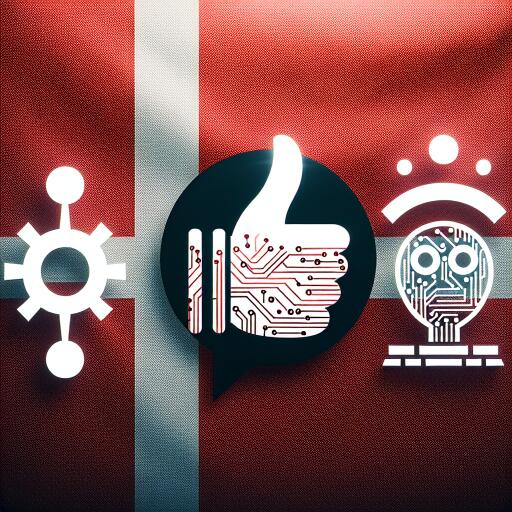Denmark Leads the Way with a National Danish Version of ChatGPT
Denmark is making strides in the digital world by embarking on an ambitious journey to develop its own Danish language version of ChatGPT. Spearheaded by the Danish Chamber of Commerce, Dansk Erhverv, this initiative aims to create a “responsible artificial intelligence” (AI) model that will cater specifically to the needs of Danish-speaking users.
Joining forces with tech giant IBM Denmark and the research-focused Alexandria Institute, Dansk Erhverv has laid down the foundation for the Danish Language Model Consortium (DLMC). This groundbreaking venture seeks not only to enrich digital communication within Denmark but also to uphold high ethical standards by making this technology freely accessible to principled organizations and individuals across the nation.
The DLMC’s primary mission is to develop a nuanced Danish language model that users can tailor to their specific requirements, enabling both enterprises and private entities to tackle complex challenges efficiently. From simplifying tax-related processes to enhancing day-to-day business operations, this custom-designed, AI-driven tool is poised to significantly ease the administrative burden on Danes.
One of the cornerstones of this project is ensuring the security and ethical use of this technology. As Thomas Kovsted, IBM Denmark’s Managing Director, elucidates, the model will incorporate safeguards to protect users and their data, embodying a new era of “safe and ethical” AI technology development in Denmark.
The DLMC initiative has already begun tackling the regulatory and legal aspects to comply with Denmark’s stringent laws and the EU’s General Data Protection Regulation (GDPR). With a projected unveiling in the last quarter of 2024, the consortium is diligently working to navigate the complexities associated with developing a responsible AI model that respects personal data privacy.
This Danish version of ChatGPT signifies a proactive step towards solving niche problems that larger language models might overlook. Casper Klynge, a key figure in the DLMC, notes the project’s innovative approach to offering specialized solutions and enhancing digital capabilities in specific areas.
The Danish government’s endorsement and financial support of this initiative in 2023 have accelerated the DLMC’s momentum, showcasing a unified commitment to digital advancement. This collaborative effort between the public and private sectors reflects Denmark’s broader aim to foster economic growth, secure its digital future, and preserve the Danish language and culture in the increasingly global digital landscape.
Furthermore, the project is exploring branding options for the Danish language model, with potential names like MyGPT? and DanGPT being considered, indicating a thoughtful approach to its introduction into the digital ecosystem.
A wide array of partners including municipalities, financial services, emergency services, and software developers have rallied around the DLMC, highlighting the broad spectrum of applications and benefits the Danish language ChatGPT is expected to bring.
With a commitment to innovation and security, the DLMC not only aims to safeguard the models and data against copyright infringements but also encourages partners to refine and customize the models for their unique needs, broadening the scope of its applicability and effectiveness.
As Denmark takes a giant leap towards integrating AI into its digital infrastructure, the rest of the world watches closely. This pioneering project has the potential to set a global benchmark for responsible AI development, ensuring that technology serves to enhance our lives, respect our privacy, and preserve our cultural heritage.
Marie Bjerre, Denmark’s Minister for Digital Government and Gender Equality, encapsulates the spirit of the DLMC project: “This is a testament to Denmark’s forward-thinking approach in embracing the digital age, while staying true to the values that define us as a nation.” As Denmark advances with its Danish language ChatGPT, it lays down a path for others to follow, balancing technological innovation with ethical principles and national identity.










